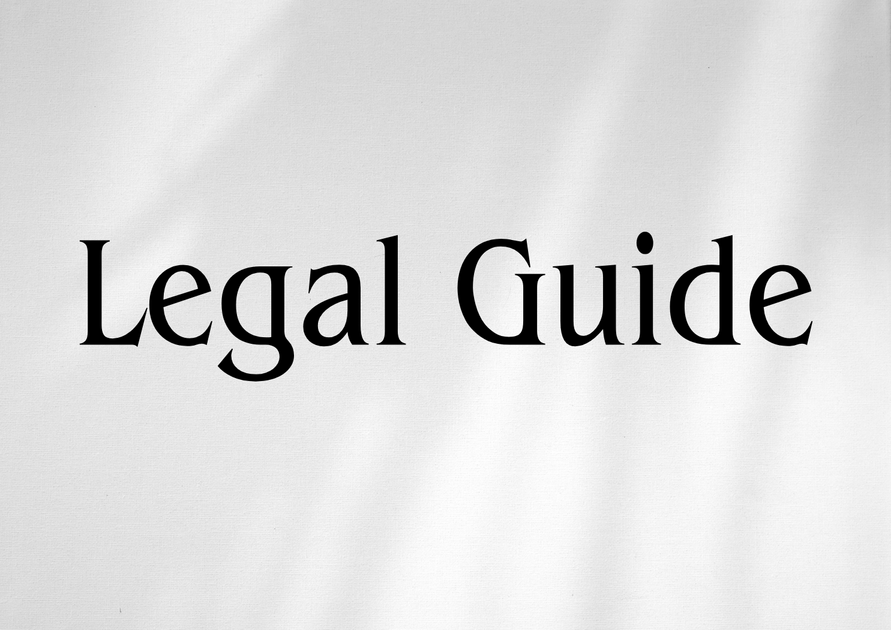Introduction: Why Evidence and Witnesses Matter in UAE Arbitration
Arbitration has rapidly become the dispute resolution method of choice for many businesses operating within the UAE, reflecting an evolution of the country’s legal landscape towards global best practices. As an international crossroads for commerce and finance, the UAE continually refines its arbitration frameworks, evidenced by the recent Federal Law No. 6 of 2018 on Arbitration, and its proactive 2023-2025 legal reform agenda. With this growth, how arbitrators handle evidence and witness testimony has moved to the core of arbitral proceedings. Understanding these procedures is not only essential for legal practitioners, but also critical for executives, HR professionals, and organizations seeking to protect their interests, mitigate commercial risk, and efficiently resolve disputes. In this article, we provide a consultancy-grade examination of how arbitrators treat evidence and witness testimony under current UAE law, with practical guidance, risk analysis, and compliance strategies for key stakeholders.
Table of Contents
- UAE Arbitration Legal Framework
- Generating and Admitting Evidence in UAE Arbitration
- Arbitral Discretion and Evidence Procedures
- Handling Witnesses in Arbitration
- Comparative Perspective: Old and New Arbitration Laws
- Case Studies and Scenarios
- Risks of Non-Compliance and Legal Pitfalls
- Compliance Strategies for Businesses in the UAE
- Future Trends and Recommendations
- Conclusion
UAE Arbitration Legal Framework
The Role of Federal Law No. 6 of 2018 on Arbitration
The regulatory backbone of arbitration in the UAE is the Federal Law No. 6 of 2018 (the “UAE Arbitration Law”), modelled closely on the UNCITRAL Model Law, affording international credibility and certainty. The Arbitration Law provides comprehensive guidance on procedures for handling evidence and witnesses, while granting arbitrators considerable discretion when it comes to the admissibility and assessment of evidence. These developments have been further complemented by judicial interpretive notes, Ministerial Guidelines, and key institutional rules from bodies such as the Dubai International Arbitration Centre (DIAC) and the Abu Dhabi Commercial Conciliation and Arbitration Centre (ADCCAC).
Institutional Rules and Their Influence
Key arbitration institutions in the UAE, including DIAC and ADCCAC, provide supplementary rules which often mirror or expand upon the statutory framework, especially in relation to document disclosure, witness statements, and procedures for hearing witnesses. Notably, recent DIAC Rules (2022) reinforce arbitrators’ flexibility and emphasize party autonomy while setting out minimum procedural standards.
Generating and Admitting Evidence in UAE Arbitration
Evidentiary Principles under UAE Law
Unlike court litigation, arbitration proceedings in the UAE are not bound by rigid evidentiary codes or technicalities. Article 33 of the UAE Arbitration Law mandates that parties shall be treated equally and given a full opportunity to present their case, which includes submitting evidence and calling witnesses. The law defers to party agreement and, in the absence of such, grants arbitrators broad authority to determine evidentiary procedures.
Sources of Evidence Frequently Utilized
- Documentary evidence: contracts, emails, correspondence, minutes, invoices, technical documents.
- Witness testimony: employees, experts, third-party witnesses.
- Expert reports: technical and financial expert opinions.
- Physical or digital evidence: site photos, recordings, digital audit trails.
Practical Consultancy Insight
Businesses should prioritize comprehensive documentation throughout their commercial dealings and ensure records are preserved and easily accessible to streamline any future arbitration. Early consultation with legal counsel on potential evidentiary issues is advisable, especially if cross-border elements or document transfers are involved.
Arbitral Discretion and Evidence Procedures
Discretionary Powers of the Arbitral Tribunal
Article 33(2) of the UAE Arbitration Law positions arbitrators as procedural gatekeepers, permitting them to determine the admissibility, relevance, materiality, and weight of all evidence. This includes the authority to:
- Request specific documents from either party or third parties.
- Refuse or limit the presentation of certain evidence to prevent procedural abuses or delay.
- Designate methods for the presentation of evidence (written, oral, electronic).
Official Guidance and Limitations
While arbitrators enjoy significant procedural leeway, the Federal Law and Ministry of Justice guidelines emphasize compliance with fundamental principles of fairness, transparency, and party equality. The tribunal’s procedural directions must not violate UAE’s public policy or mandatory legal norms, as these are grounds for challenging or setting aside an award under Article 53.
Table: Arbitrator’s Discretion in Managing Evidence
| Area | Extent of Discretion | Statutory Limitation |
|---|---|---|
| Admissibility of Documents | High – Tribunal decides | Subject to party agreement and public policy |
| Witness Summons | High – Tribunal manages process | Witnesses cannot be compelled as in courts |
| Expert Evidence | High – Tribunal can appoint or accept | Should ensure party equality and right to comment |
| Relevance and Weight | Complete – Award not open for review by courts | Must provide reasoning if evidence is excluded |
Handling Witnesses in Arbitration
Witness Statements: Written and Oral Testimony
Current UAE practice, and the DIAC Rules, favor the use of detailed written witness statements as the primary method for presenting factual and expert witness evidence. Usually, these statements are submitted ahead of any oral hearing and may be supplemented by live oral testimony and cross-examination at the arbitrator’s discretion.
Witness Summoning and Compellability
The UAE Arbitration Law empowers tribunals to invite witnesses to appear, but unlike UAE courts, they lack coercive enforcement powers. Notably, Article 36 permits the tribunal or a party (with tribunal approval) to request assistance from a competent court to compel witness attendance or order the production of documents. However, this judicial support is discretionary and subject to overarching principles set by the Ministry of Justice and the Federal Legal Gazette.
Procedures at Hearings
- Witnesses may be examined and cross-examined under the rules agreed by the parties or as determined by the tribunal.
- Tribunal may limit the scope of examination or the number of witnesses, respecting efficiency and equal treatment.
- Tribunal may allow remote/video testimony, subject to the parties’ agreement and technological readiness.
Analysis: Protecting Due Process
The sanctity of due process is central to arbitral legitimacy. Tribunals in the UAE are cautious to avoid even the appearance of one-sided treatment, especially when assessing whether to admit or decline witness testimony. Failing to allow a party to present a key witness can expose the award to challenge for procedural irregularity or denial of defense rights (Article 53).
Expert Witnesses and Tribunal-Appointed Experts
Tribunals can rely on party-appointed or tribunal-appointed experts to clarify technical or accounting issues. The new law clarifies parties’ right to comment on, contest, or respond to any expert reports submitted into evidence, enhancing procedural transparency.
Comparative Perspective: Old and New Arbitration Laws
Since the promulgation of Federal Law No. 6 of 2018, the UAE’s arbitration regime has shifted from a judicially supervised, formally procedural approach (based on the Civil Procedure Code) to a system largely modelled on international standards. This transformation directly impacts evidence and witness protocols.
| Feature | Pre-2018 Regime | Current Regime (Post-2018) |
|---|---|---|
| Evidentiary Rules | Strictly procedural, often defaulting to UAE Civil Code | Party autonomy prevails; flexible, with reference to international norms |
| Witness Compellability | Strong reliance on courts to compel | Tribunals may request, but courts may assist only on request |
| Written vs Oral Testimony | Oral evidence emphasized | Written statements heavily favored; oral at discretion |
| Expert Testimony | Mainly court-appointed experts | Party or tribunal-appointed experts, transparent procedures |
Practical Consultancy Insight
Under the modern regime, businesses must be proactive in preparing their witness and evidentiary case well ahead of proceedings. Relying on post-dispute document collation or late-stage witness identification can dramatically undermine legal strategy under the flexible but demanding standards of modern UAE arbitration.
Case Studies and Scenarios
Case Study 1: Construction Contract Dispute
A UAE-based contractor faces claims from a project developer over alleged construction delays. The contractor, already in anticipation of possible litigation or arbitration, has preserved site diaries, project correspondence, and digital schedules. In the arbitration, the tribunal requests these documents and also considers written witness statements from site supervisors. The developer, unprepared, struggles to present effective evidence.
Outcome: The arbitrators admit the contractor’s documentary and witness evidence, giving weight to the contemporaneous records. The developer’s inability to substantiate their position impacts the final award. Key Insight: Early evidence preservation and witness preparation are decisive factors in UAE arbitrations.
Case Study 2: Financial Services Arbitration Involving Cross-Border Elements
A financial institution in Abu Dhabi faces a dispute with a European counterparty. The tribunal allows parties to present witness statements remotely, given travel constraints. One witness, however, refuses to attend despite being summoned. The arbitral tribunal refers the matter to the Abu Dhabi Court for assistance, but the court, assessing the circumstances, declines compulsory action. Ultimately, the tribunal proceeds, noting the absence in weighing the evidence.
Outcome: The award, while accounting for the missing evidence, survives challenge on the basis that due process was respected. Key Insight: Compulsory measures for witnesses are not guaranteed, highlighting the importance of cooperation and effective pre-arbitration agreements.
Risks of Non-Compliance and Legal Pitfalls
Procedural Risks Leading to Award Annulment
- Failure to treat parties with equality or prevent full presentation of their case (Article 53(1)(b)).
- Improperly excluding key witness or material evidence.
- Proceeding without proper notification or sufficient opportunity for parties to respond to evidence.
- Non-adherence to mandatory public policy requirements in evidence handling (e.g., accepting unlawfully obtained documents).
Commercial Risks for Businesses
- Loss or incomplete preservation of documentary evidence undermines contractual or damages claims.
- Relying solely on employee memories without supporting records leads to weak factual witness statements.
- Failing to manage witness attendance and cooperation due to cross-border or employment termination issues.
- Exposure to adverse cost awards for procedural delays caused by inadequate preparation.
Compliance Strategies for Businesses in the UAE
Building a Robust Evidence Management System
- Implement document retention policies aligned with key commercial risks (especially for construction, infrastructure, energy, and financial services sectors).
- Regularly train staff on evidence preservation, especially at operational and managerial levels.
- Designate custodians responsible for securing evidence and facilitating its prompt production in arbitration proceedings.
Witness Preparation and Management
- Identify potential factual and expert witnesses early in the dispute resolution lifecycle.
- Prepare witness statements in line with anticipated arbitration rules, emphasizing chronology, directness, and clarity.
- Consider securing undertakings or cooperation clauses within employment contracts for key personnel likely to serve as witnesses.
Utilizing Technology
- Adopt digital platforms to track, store, and retrieve contracts, communications, and project data securely.
- Leverage secure video conferencing tools for remote testimony and cross-border arbitrations.
Visual Suggestion: Compliance Checklist Table
| Compliance Step | Recommended Action | Responsible Department |
|---|---|---|
| Evidence Retention | Implement and audit retention policies | Legal/Compliance |
| Witness Management | Track key witnesses, maintain contact details | HR/Legal |
| Digital Recordkeeping | Centralize digital document storage | IT/Legal |
| Pre-Arbitration Planning | Map out evidence and witness strategy | Legal/External Counsel |
Future Trends and Recommendations
Impact of Recent Reforms (UAE Law 2025 Updates)
In line with the UAE’s 2023-2025 reform objectives, ongoing updates focus on enhancing the efficiency of dispute resolution and deploying technology-driven solutions in arbitration. These trends are reflected in the continued modernization of institutional rules and the Ministry of Justice’s initiatives encouraging e-discovery and remote testimony. As these reforms take deeper root, businesses should anticipate tighter regulations around digital evidence, increased scrutiny of data integrity, and more nuanced due process norms around virtual hearings.
Best Practices for Forward-Looking Legal Compliance
- Stay Informed: Monitor updates to the Arbitration Law, institutional rules, and ministerial circulars. Periodically consult with legal advisors regarding evolving requirements.
- Digital-First Compliance: Invest in evidence preservation technology and train personnel on e-discovery readiness.
- Integrated Dispute Readiness: Incorporate arbitration evidence planning within overall risk management and corporate governance frameworks.
- Advance Witness Agreements: Where possible, craft arbitration clauses and employment contracts that anticipate witness cooperation.
- Review Public Policy Risks: Scrutinize document sources and cross-border data transfers to avoid public policy conflicts or data privacy breaches.
Conclusion
The UAE’s approach to arbitral evidence and witness management has undergone a profound transformation, paralleling the nation’s commitment to being a global business hub. Today’s framework – grounded in Federal Law No. 6 of 2018 and strengthened by ongoing reforms – empowers arbitrators with flexible, efficient tools, while upholding fundamental due process principles. Success in UAE arbitration now depends not only on substantive legal rights, but on organizational readiness: robust evidence management, strategic witness preparation, and compliance with evolving procedural norms. Businesses and legal practitioners should act proactively, adopting best-in-class processes and staying abreast of legal trends. Doing so will not only minimize dispute risks but position organizations to navigate the UAE’s progressive legal landscape with confidence.



